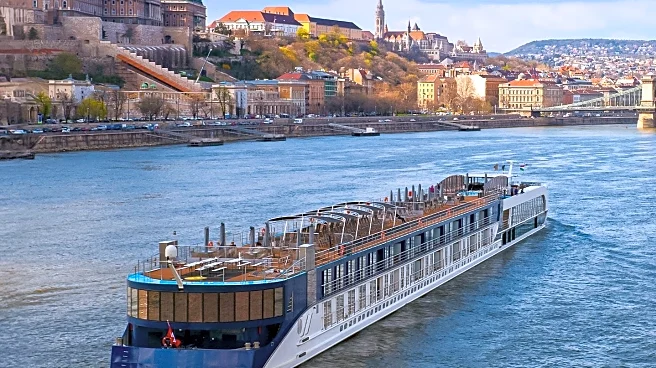What is the story about?
What's Happening?
The Cruise360 Conference in Brisbane showcased the latest trends in river cruising, with industry leaders discussing growth and challenges. Kristin Karst, co-owner of AmaWaterways, highlighted the shift from ocean to river cruising, emphasizing unique experiences such as small, personalized tours and multi-generational travel. The conference also addressed challenges like fluctuating river levels and climate change. Research indicated that river cruising is gaining popularity, with 350,000 Australians participating globally, driven by perceived value and unique travel experiences.
Why It's Important?
River cruising is becoming a significant segment in the travel industry, offering unique cultural experiences and contributing to local economies. The industry's growth reflects changing consumer preferences towards more personalized and sustainable travel options. As river cruising becomes more popular, it presents opportunities for travel agents to specialize in niche markets and offer tailored experiences. However, challenges such as climate change and cost perceptions need to be addressed to sustain growth and attract younger demographics.
What's Next?
The river cruise industry is expected to continue evolving, with a focus on sustainability and community engagement. Travel agents may increasingly specialize in niche markets to differentiate themselves. The industry will likely address cost barriers by highlighting the value proposition of river cruises compared to independent travel. As interest grows, river cruise companies may expand their offerings and destinations, further integrating local cultures and economies into their itineraries.
Beyond the Headlines
The shift towards river cruising reflects broader trends in travel, including a desire for more immersive and sustainable experiences. This trend may influence other sectors of the travel industry to adopt similar practices, promoting environmental sustainability and cultural engagement. The industry's focus on local sourcing and community support could set a precedent for responsible tourism practices.

















